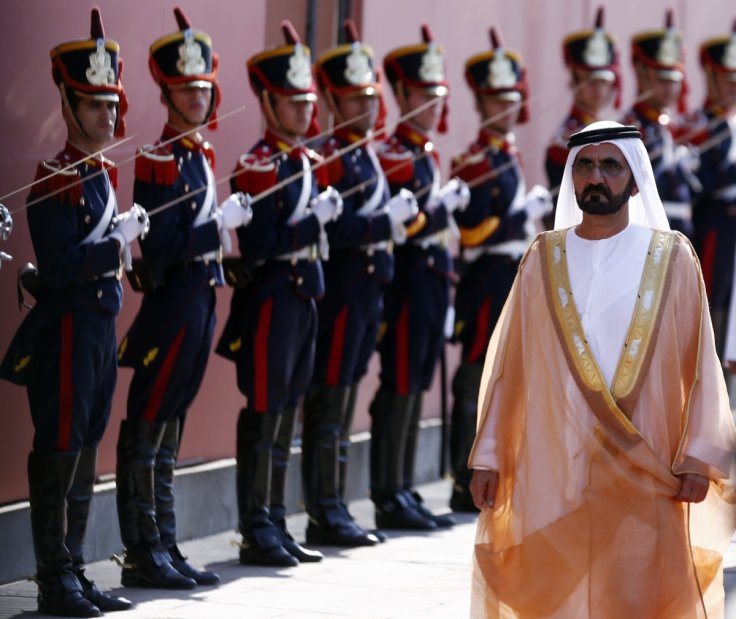The billionaire ruler of Dubai is receiving hundreds of thousands of pounds in EU grants for land owned in the United Kingdom. Despite being among the world's richest men with an estimated net worth of £2 billion, Sheikh Mohammed, 70, is one of Britain's biggest beneficiaries of EU farming subsidies, which rewards landowners for simply owning land.
EU Farming Subsidies for Land Owned in the UK

Sheikh Mohammed bin Rashid al-Maktoum's Wester Ross estate received more than £80,000 and his Newmarket horse-breeding and horse-racing operation received more than £316,000 last year.
The sheikh owns the 63,000-acre Inverinate estate in Wester Ross, for which Smech Management, a company he has a 'controlling interest' in, received £80,775.52 in 2019, Smech previously received £63,591 in 2018 and £79,214.49 in 2017. Another one of the sheikh's companies, Godolphin Management, also received £316,899 for a horse-breeding and horse-racing operation in Newmarket, Suffolk, in 2019.
The Newmarket-based stud farms host helipads, tennis courts and even an "equine hydrotherapy" pool. Sheikh Mohammed also owns a £45m mansion, Dalham Hall, in the area.
Policy is Skewed, Claim Campaigners
Campaigners have long argued that the EU's farming subsidy policy is flawed. The subsidies, part of EU's Common Agricultural Policy (CAP), were designed to support the farming industry and help farmers and landowners maintain their land but are instead benefiting the world's richest.
A 2017 Unearthed probe revealed that one in 5 of the top 100 recipients of the CAP farming subsidies were billionaires featured on the Sunday Times Rich List.
"CAP payments should be paid for public good and to those who need them," said Green MSP Andy Wightman, who has spent decades investigating land ownership. "There shouldn't be a blanket eligibility. I don't think Sheikh Mohammed and Smech need it and should be in receipt of public money."
Dr Calum MacLeod, policy director of Community Land Scotland, the umbrella organisation for community buyouts, also echoes Wightman's sentiments.
"It's crucial there is accountability and transparency around large-scale and concentrated private land ownership in Scotland," he said. "At the very least there needs to be a robust public-interest test for large-scale private estate purchases to ensure such land holdings actually deliver sustainable development benefits for the communities that live on them rather than being the luxury playthings of individuals."
Farmers receive £3bn in subsidies from the CAP scheme, which the UK Government has promised to match after Brexit. The Department for Environment, Food and Rural Affairs said that releasing subsidies based on the amount of land owned by an individual is "inefficient" and have therefore decided to move away from EU's "outdated, bureaucratic Common Agricultural Policy and towards a fairer system that rewards our hard-working farmers."









